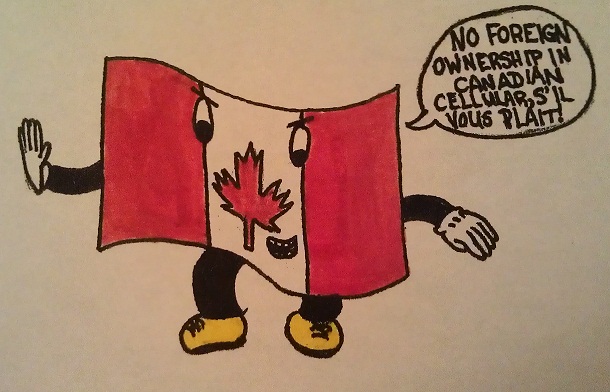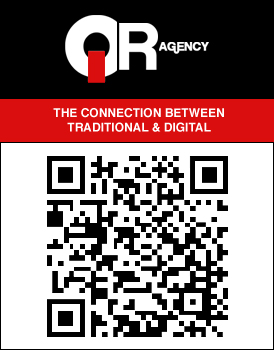Myth: The Canadian Wireless Industry Is Self-Regulated
You hear it time and time again from all different sources: the Canadian wireless industry is self-regulating. Some people use it as a complaint, saying that the state of affairs is terrible and that it is because there is no regulation that the Canadian consumer is being trampled on. They say that because the Canadian wireless industry is self-regulated the wireless providers can do whatever they want to consumers. They tell us that the only way to cure this problem is to let government begin to regulate the wireless industry. The new entrants into the Canadian wireless industry also are quoted time and time again saying how it is bad for the consumer that the wireless industry in Canada is self-regulated.
Not surprisingly, the three major wireless carriers don’t really say very much about this issue at all because they are making money hand over fist. In fact, according to a report from Bank of America Merrill Lynch in July 2010 quoted by CBC, Canadian carriers had the highest average revenue per user (ARPU) per month, at $54.73 US. The average ARPU among developed nations was $42.90. In the United States, ARPU was $49.54 while in the United Kingdom it was $31.63. Greece had the lowest APRU in the group with $19.87. As I said above, the people who would have the CRTC and the government be even more involved in our day to day lives keep screaming for them to step in and regulate this ‘self-regulated’ industry. I want to dispel this myth of self-regulation today, once and for all.
Before I continue on I would like to define what the word ‘regulate’ means. According to the Merriam-Webster Dictionary the term regulate is a transitive verb whose first definition is: “to govern or direct according to rule“. The second definition is a two-parts and it is: “(1) to bring under the control of law or constituted authority” and “(2) to make regulations for or concerning <regulate the industries of a country>“. The second definition is, in my opinion, the most relevant for us in the context we are discussing. Clearly - at least to my reading of it - the term “regulate” is when a government exerts its authority on an industry to control how it functions.
Moving on, what amazes me the most about this myth is the way most people don’t realize it is complete and utter nonsense even as they write things that clearly contradict the possibility of the industry being without any government regulation. Case in point, an article in the Toronto Star in August 2010 by Personal Finance Columnist Ellen Roseman. As you read the portion I have quoted remember what the definition of “regulate” is:
“ …the federal government is trying to bring in more competition, even if it means lifting the restrictions on foreign ownership.
…
The federal government has backed off from regulating cell phone service,…[i]nstead, it has promoted industry self-regulation.”
She first states that the federal government is trying to bring in more competition even if that means that they will have to lift the current restrictions on foreign ownership. After that, a couple of lines down she talks of how the government has promoted industry self-regulation for the Canadian wireless industry. Excuse me? The Canadian federal government has a ban on foreign ownership for Canadian wireless companies but that isn’t considered regulating the wireless industry? The fact that Vodafone, Orange, T-Mobile, and every other massive telecommunications company are only allowed to enter the Canadian market as a minority shareholder in a company isn’t considered a regulation. That they cannot bring their massive international resources to bear to really compete with the incumbent brands here in Canada because they aren’t allowed to have controlling interest in a Canadian cellular provider isn’t thought of at all as a regulation? To that I say: RIDICULOUS! Sure, maybe the government isn’t regulating the day-to-day operations of the wireless industry here in Canada but what they are regulating is so overarching that it changes the very nature of the game and has made it extremely difficult for anyone to compete with the incumbents.
According to a February 2011 CBC article Canada’s telecom restrictions have been singled out by the Organization for Economic Co-operation and Development (OECD) being the “most severe” restrictions in the developed world. Restrictions? Wait, if you restrict something doesn’t that mean you are making laws controlling it by not allowing it to operate in a certain way? And what again was the definition of regulation? If you’ve forgotten I will remind you, it is “to bring under the control of law”. Hmmm, sounds like regulation to me! In fact, according to the same article the previous federal Liberal government and current Prime Minister Stephen Harper’s minority Conservative government both put together panels to research the foreign ownership issue for Canadian telecom. Those panels concluded much like the OECD that that allowing foreign companies to enter the Canadian telecom industry is imperative to getting more competition, lower prices and better services for the Canadian consumer.
People who are of the belief that the government should play a little role in the markets of a company as possible and that the market forces will end up benefiting the consumers are often looked upon with disdain in Canada for supporting the Canadian wireless industry not being regulated. The thing is that these detractors are missing a serious aspect of the what it means for an industry to be deregulated and therefore self-regulated. It means that the government can’t regulate or control the industry in ANY way. The reason market forces haven’t been taken root in the Canadian wireless industry for the benefit of the consumer is because the government hasn’t allowed them to take root. The result of the ban on foreign ownership is a wireless market that is deregulated in all but the most important way, the one that allows true competition to happen.
The result of this kind of deregulation is the stories that we see on shows like Canada’s Worst Cellphone Bill Canadian wireless companies having by far the highest ARPU with one of the lowest cellular market penetration rates. So don’t ever let anyone fool you into thinking that the Canadian Wireless Industry is entirely self-regulated and that is the root of the problem. The problem is that the self-regulation never actually happened, that the federal government never actually let the market forces work for the benefit of the Canadian consumer and that the wireless industry in Canada is still very much regulated. What’s worse, the market is regulated in such a way to benefit only the wireless service providers and not the Canadian consumer. Therefore, no matter if you believe that government regulation of an industry is essential to ensure the best end results for consumers OR you believe that allowing the market forces to encourage competition and that is what will ensure the best end results for the consumers neither of those are happening and Canadians are paying the price - literally.
For More Info:
CBC 2010.07.19: “Canadian wireless firms still tops in profit: report”
CBC 2011.02.07: “Conservatives must deal with telecom’s festering foreign ownership problem”
Merriam-Webster Dictionary Online entry for “Regulate” here
Toronto Star 2010.08.03: “Roseman: Wireless companies have to trim cancellation fees”










